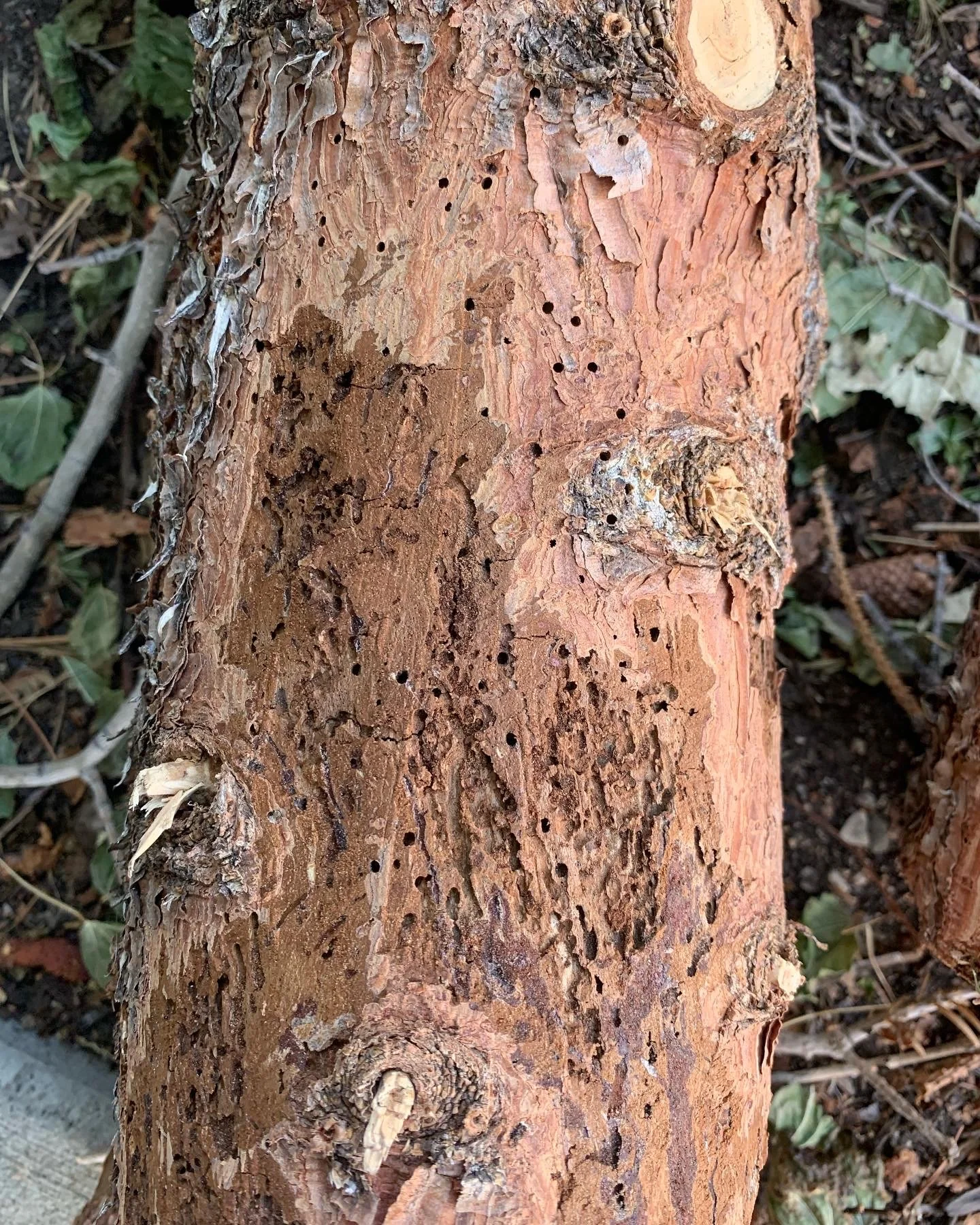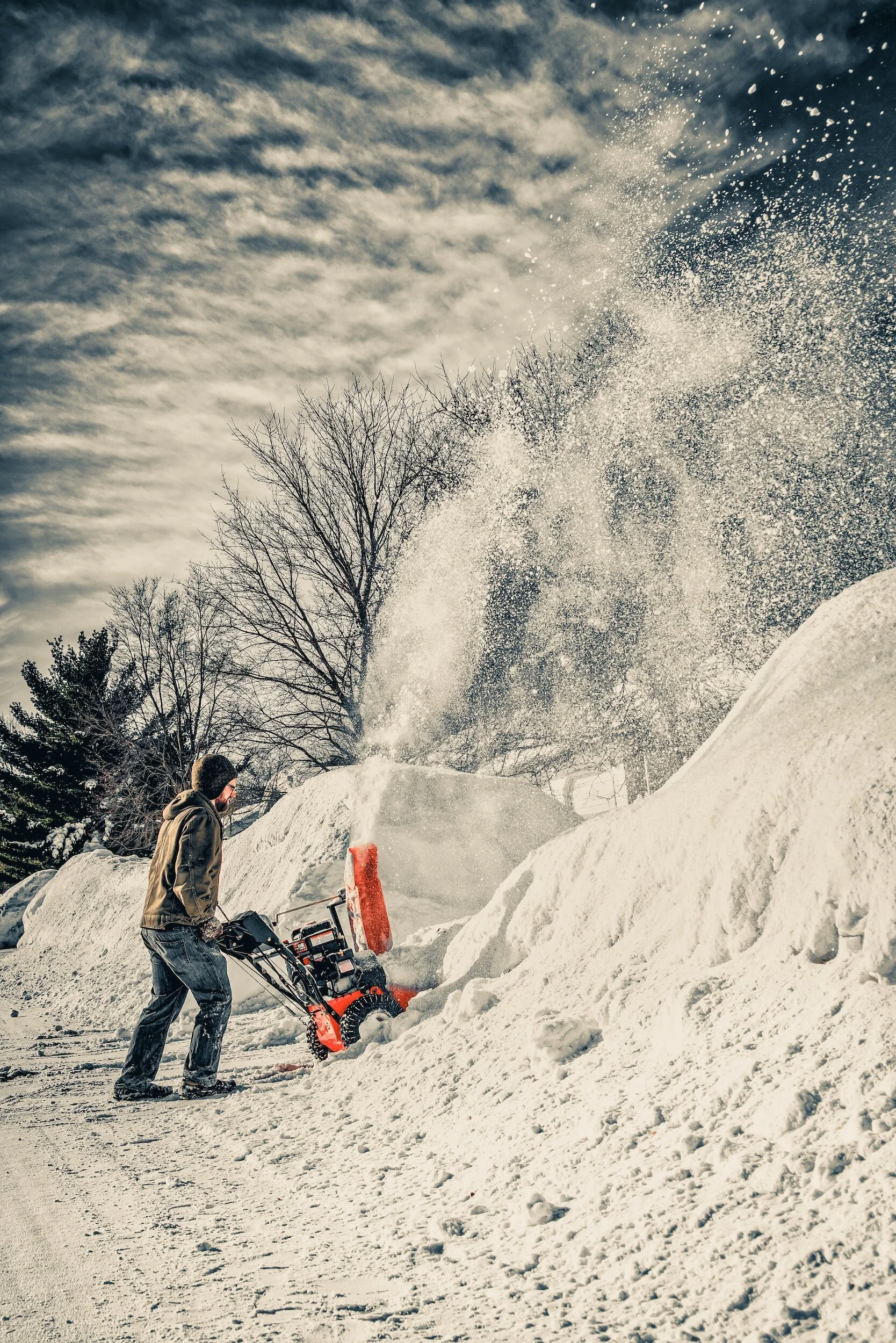Caring for Your Fruit Trees: Common Threats & How to Prevent Them
Fruit trees bring beauty (and delicious harvests!) to our landscapes, but they also face challenges from pests, disease, and wildlife. Here are some common threats they face in the Wood River Valley, and how to prevent them.
How ArborCare Resources is Helping Rebuild Idaho's Forests
At ArborCare Resources, we’re always looking for ways to give back to our community and environment. Recently, we had the unique opportunity to partner with the United States Forest Service (USFS) to contribute to the reforestation efforts right here in Central Idaho. Over a span of several days, our team was hired to climb towering pine trees in the Sawtooth National Forest and collect cones filled with seeds that will be used to grow the next generation of healthy, resilient forests.
What’s Bugging Us? Ips Beetles!
Ips beetles, commonly known as engraver beetles, are small bark beetles that primarily target coniferous trees such as pines and spruce. They are notorious for infesting weakened or stressed trees, leading to severe damage and often tree death. Preventing their spread is crucial to maintaining the health and beauty of our green spaces.
How to Avoid Tree Damage During Construction
When it comes to construction projects, it's easy to overlook the impact on your trees and landscaping. Damage inflicted by construction equipment and activities—such as broken branches, severed roots, and soil compaction—can often be irreversible and may only become apparent long after the work is done.
Building Resilience Across Blaine County
Another exciting venture in the works is the Building Resilience Across Blaine County through Forest Restoration and Tree Planting Project. A volunteer tree planting event will take place around the playground equipment on May 18th, 2024 at Kiwanis Park.
Why Choose an ISA Certified Arborist?
ISA Certified Arborists are true tree enthusiasts with an unparalleled passion for the art and science of tree care. This certification isn't just a title; it's a testament to their dedication and expertise. ArborCare’s team of professionals have not only mastered the intricacies of planting, nurturing, and maintaining trees but have also aced a rigorous exam crafted by the nation's top tree care experts.
Fall Needle Drop: What’s Normal and What’s Not?
Conifers are highly valued trees that are aesthetically pleasing and add color to the landscape year-round. Every fall our phones ring with calls from concerned customers panicking when they see the needles of their evergreens turn yellow, brown, or reddish in color. Most don’t realize that evergreens must drop their old needles at some point just like deciduous trees lose their leaves.
7 Ways to Prepare Your Landscape for Winter
It may feel like summer was over before it even started this year, but fall has officially arrived. For many, that may mean cool weather hikes to enjoy fall color, planning for the upcoming hunting season, or speculating about the approaching ski season. Considering adding one more item to your fall list: preparing your trees and shrubs for the winter. Winters in the mountains can be a challenging time for plants, but there are several things that can be done to improve your chances of success.
Saving Whitebark Pines for the Future
Did you know that there are several keystone species that are native to our great state? One being the Whitebark pine—these beautiful trees can be seen in the Wood River Valley and on top of Baldy, but the best area to see large healthy stands is at high elevation in the Sawtooths.
Mystery Solved: Aspen Leaf Spot & Mosaic Virus
We received numerous calls this summer about aspen trees that looked sickly and were thought to be dying. Most concerning was that they were also prematurely dropping leaves in the middle of summer. This valley-wide incident was a result of the abnormally frequent rainstorms our location received this past spring.










